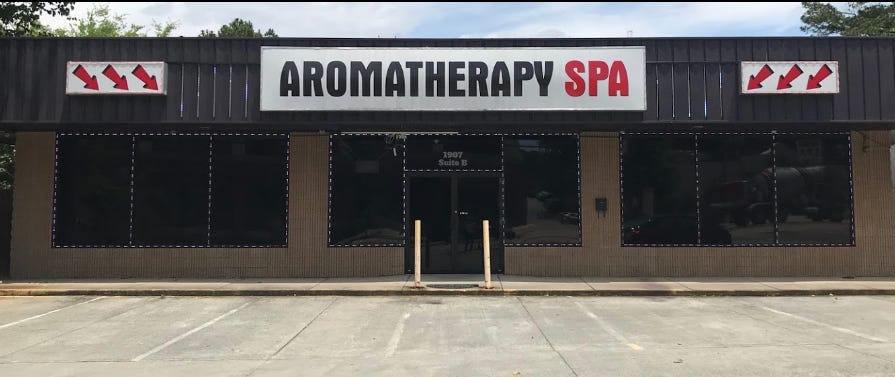What haven't I considered about the Atlanta mass shooting?
There are many intersecting layers to this violence against predominantly Asian women, including race, class and gender. We'll take you through.
Hey there, and welcome to the 23rd issue of The Supplement, a newsletter that fills in the gaps of your other news intake. This is Alex, one-third of The Supplement team!
Each week, we pick a question submitted by you, our readers. If you’d like to submit a question for a future week — it can seriously be about anything — then email us at thesupplementnewsletter@gmail.com. Come hang with us on Instagram and Twitter as well!
This week, we’re tackling this question: What haven't I considered about the Atlanta mass shooting?
TL;DR: This week, a white man went on a shooting rampage in metro Atlanta and killed eight people at three massage parlours. Six of the victims were Asian women, layering anger and grief onto a year that is already seeing a massive spike in anti-Asian hate. Many have also pointed out the need to consider the intersecting layers when thinking about the attack, including gender and class.
Note: The term “Asian” covers a wide range of ethnicities. Here, we focus on groups that have been most impacted by the current wave of anti-Asian hate, meaning East Asians and Southeast Asians.
There are many intersecting layers to the Atlanta spa shooting, so let’s start with some facts about the attack.
Robert Aaron Long, a 21-year-old white man, has been charged with eight counts of murder and one count of aggravated assault for the shooting rampage at three massage parlours in metro Atlanta. Eight people, six of them Asian women, died in the March 16 mass shooting.
At a press conference following the attack, police announced that it was too early to say if this was motivated by race — though it has not been ruled out. Police also said Long told them race was not a motive, pointing instead to a sex addiction and the spas as a “temptation for him that he wanted to eliminate.”
This spurred widespread anger and skepticism, with people pointing to the common profile amongst most of the victims and the fact that the targeted spas publicly advertise mainly Asian women working there.
And the official who said Long had a “bad day” was found to have shared a Facebook post promoting t-shirts blaming China for COVID-19.

More broadly, people have situated the impact of the attack within the growing wave of anti-Asian discrimination and hate in the US — fuelled by the rhetoric around the pandemic.
Canada is no different. Project 1907, an initiative that aims at providing space for diasporic Asians to explore their histories and identities, said in September 2020 that it received over 600 reports — with 54 per cent of incidents taking place in Vancouver and Toronto alone. In early 2021, the Vancouver Police Department noted that reported incidents of anti-Asian hate crime jumped 717 per cent over the past year. Toronto has not yet released its statistics.
This hate has disproportionately harmed Asian women in both the US and Canada.
But anti-Asian racism has been a feature in North America long before COVID-19. In Canadian history, examples range from isolated race-based assaults and murders, to race riots, to state policies like Japanese internment camps, the Chinese head tax and the Chinese Exclusion Act.
On top of these challenges, Asian women are festishized and hypersexualized — dangerous stereotypes fuelled by wars and media portrayals. This is why many people have pointed out that the sex addiction factor doesn’t necessarily detract from the race motivation. Instead, racism and misogyny intersect to heighten the potential harm to them.

Let’s also talk about class.
In popular culture, the model minority myth portrays Asians as a financially successful minority bloc and places them in closer proximity to whiteness than other people of colour. But besides reinforcing anti-Black racism, the myth hides a massive income gap between the different ethnic groups that are lumped under the Asian identity. Immigration status adds another layer to the risk factor.
As a result, many Asian women work in frontline service industries, including in massage parlours, which could involve sex work. In a VICE News article, advocates said they are worried the Atlanta shooting would be used by police to justify more raids of parlours — a move that they said doesn’t keep massage parlour and sex workers safe.

“That the Asian women murdered yesterday were working highly vulnerable and low-wage jobs during an ongoing pandemic speaks directly to the compounding impacts of misogyny, structural violence, and white supremacy,” said Phi Nguyen, litigation director at Asian American Advancing Justice - Atlanta, in a CNN article.
Here’s someone to follow: Check out The Tyee’s Chris Cheung. He writes about urban life in Metro Vancouver — and his recent piece about rezoning and its impact on the Filipino community is an essential read.
Here’s a story (or two) to check out: The Atlanta shooting also came at a particularly heavy time for women. This is especially with the recent murder of Sarah Everard, a 33-year-old woman who went missing while walking home in London. In Canada, the search for Chelsea Poorman in my city of Vancouver also puts the spotlight on the ongoing crisis around missing and murdered Indigenous women and girls.






